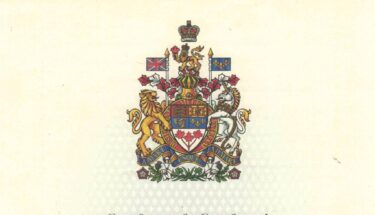How to apply for Canadian Citizenship Through Parents/Grandparents with limited documents – Part 2
In part one of this article, we have already outlined measures you can take when you are missing certain documents for your Canadian Citizenship Certificate but what do you do when you have all your documents but some of them show different names or different spellings of names?
You might have your parents’ marriage certificate but one of the names doesn’t match the birth certificate you have for them. This is problematic in itself but, if your parents are deceased then it’s simply not possible to obtain replacements with amended information. Most Government authorities require affidavits and other supporting ID’s to make any sort of amendments to documents and if the person is no longer living then that is impossible.
As the applicant for a first citizenship certificate, one of the mandatory pieces of documentation is a long form birth certificate. A long-form birth certificate is a more detailed version of a birth certificate, containing additional information compared to a standard or short-form birth certificate. The specific details included on a long-form birth certificate can vary depending on the issuing authority and the requirements of the jurisdiction. Typically, it provides comprehensive information about the individual’s birth, such as:
- Full name of the individual (including any middle names or suffixes).
- Date and place of birth (including city or town, county, and state or country).
- Full names of the individual’s parents, including their maiden names if applicable.
- Parents’ places of birth.
- Parents’ occupations or other identifying information.
- Registration number or other identifying information related to the birth record.
Long-form birth certificates are often required for various official purposes, such as obtaining a passport, applying for citizenship, or proving identity for legal or administrative matters. They are typically issued by government agencies responsible for vital records, such as state or national departments of health or vital statistics.
If you, as the applicant, have since married and have a different last name then you must also include your marriage certificate. This must be the actual certificate not the license or solemnization.
When the new process for Canadian Citizenship through a grandparent begins then the long form birth certificate or the naturalization certificate will also be a mandatory document for the grandparent(s).
All the certificates for any application must link together with matching names. The applicant must have a birth certificate that shows the parents’ names and the parents must have a birth certificate or naturalization certificate that, in turn, shows their parents names. This is what links everybody together.
If there are certificates that do not correlate with each other then it’s important to obtain the document that will link them. Most of the time this can be a marriage certificate or an official name change certificate.
What can you do if you cannot obtain these documents?
If you encounter a situation where one of your documents fails to correlate with another, and the document owner is deceased, there are steps you can take to ensure IRCC understand your situation and are therefore obliged to review the information you submit. This is called an Affidavit.
What is an Affidavit?
An affidavit explaining someone’s different names when they are not alive to provide documents is a legal document used to attest to the various names by which an individual was known during their lifetime. This affidavit is typically provided by someone who has knowledge of the different names used by the individual, such as family members, close associates, or others familiar with the person’s identity.
The affidavit should include:
Identification: The full name and any known aliases of the deceased individual.
Details of Name Changes: A detailed explanation of the circumstances surrounding the different names used by the individual, including any legal name changes, nicknames, or variations in spelling.
Affiant Information: Information about the person providing the affidavit, including their full name, address, and relationship to the deceased.
Notarization: The affidavit should be signed in the presence of a notary public, who will verify the identity of the affiant and witness the signing of the document.
Date and Place: The date and place where the affidavit is executed.
An affidavit explaining someone’s different names can be used to clarify any discrepancies or confusion regarding the individual’s identity, especially in legal or administrative matters such as estate settlement, probate, or the transfer of assets. It serves as a sworn statement under oath, attesting to the truthfulness and accuracy of the information provided.
If you submit an affidavit with your application and include an additional explanation letter, then you have a much higher chance of your application being approved.
Doherty Fultz Immigration specializes in innovative solutions and through careful crafting of submission letters and citing case laws where necessary we are usually successful in helping our clients obtain their immigration documents.
 Author:
Author:

